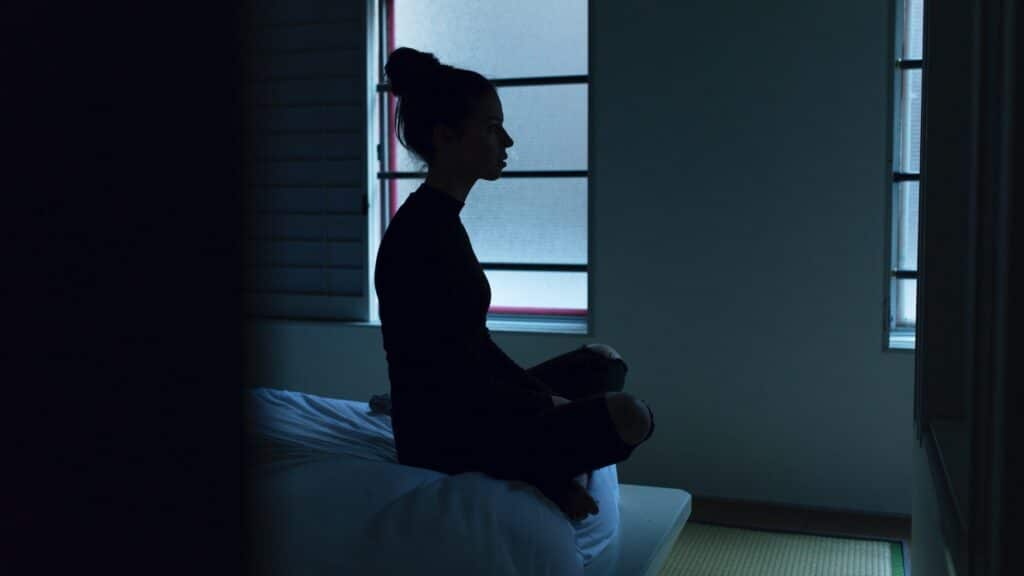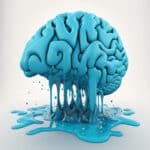
The number of Americans who suffer from some sort of sleep disorder is even higher: 50-70 million Americans suffer from some sort of sleep disorder, including snoring, insomnia, sleep apnea, and others. Sleep disorders can lead to problematic behavior, like impaired judgment and falling asleep while driving.
Both of these issues create enough of a problem to create a major impact on American life. When they act together, the issues can be even more serious. Both alcoholism and sleeping disorders can amplify each other, causing a long-term impact on your health. Thankfully, with appropriate care, both can be treated, and while suffering from two types of disorders at the same time can be challenging, it is not a challenge that is impossible to overcome.
How Does Alcohol Affect Sleep?
Alcohol is a depressant. This doesn’t actually refer to the way it can impact your mood although it can make you depressed. Instead, this refers to the way that alcohol impacts your central nervous system. Alcohol slows down your functioning and brain activity. This occurs because alcohol will increase the impact of GABA, a neurotransmitter in your brain that is associated with tranquilizing effects. This is one reason some people feel more relaxed and less inhibited when they drink.
Of course, as anyone who has ever imbibed alcohol knows, the effects of alcohol are cumulative. This means that the more of it you consume, the more potent its impact will be. As such, drinking more and on a more regular basis — including at levels that may induce intoxication or classify someone as an alcoholic — will have a more serious impact.
All of this results in a potential impact on sleep. GABA is found in many tranquilizers and sleeping aids, and this helps to explain why alcohol can make someone sleepy. However, that is not to say that it increases the quality of your sleep. As noted by the Sleep Foundation, alcohol will reduce the amount of Rapid Eye Movement (REM) sleep that you get. REM sleep is associated with many health benefits, including improved mood, recovering from injuries, and increased cognitive function. As such, anything that may impair REM sleep, such as alcohol, will negatively impact your health.
In addition to impacting the quality of your sleep, alcohol will not help you stay asleep. As noted by multiple studies, it will actually disrupt your sleep in the latter half of an evening. The quality of your sleep will suffer, and you will have a harder time staying asleep, potentially causing you to wake up more often in the middle of the night. It can also enhance the problems normally seen by people who have sleeping issues, increasing the negative impact of sleep apnea.
People who stop drinking alcohol — even as part of a recovery program — often report having sleeping trouble. This is a result of the changing body chemistry that occurs as your body tries to adjust itself to a life without alcohol. Fortunately, with time and professional help, individuals can re-adjust their body chemistry to a life without alcohol and ensure that they are able to sleep well again.
These are not uncommon challenges. According to official sources from the United States government, 25%-72% of all people who have some sort of alcohol use disorder have a sleep problem. As such, people who are in recovery for alcohol use disorder should prepare for potential sleep problems and work with professionals to combat these challenges. With appropriate treatment, these issues can be defeated.
All of this is why alcohol should not be used as a sleep aid. Thankfully, sleep programs can be overcome by engaging in more healthy sleep strategies.
How Sleep Problems Can Make Alcoholism Worse
The issue of sleep and alcohol is that there are causality questions. Alcoholism can unquestionably bring about sleeping problems, but sleeping problems can also cause alcoholism to be worse.
In order to understand this, it is vital to understand just how alcoholism works. The causes of alcoholism are multi-faceted and may involve a variety of issues, including traumatic experiences, depression, family history, and more. However, it has been long established that people who suffer from an alcohol use disorder often already struggled with any number of mood disorders, including depression or anxiety challenges. They may turn to alcohol in order to self-medicate. Of course, rather than address these issues, alcoholism can exacerbate the challenges presented by depression, anxiety, or any number of mental illnesses, making these symptoms much worse.
It is also established that there is a strong connection between sleep and mood disorders. A lack of sleep can damage someone’s mental health, ultimately resulting in increased problems with depression and anxiety.
As such, there is clearly a connection. Someone who suffers from sleep disorders can have poor mental health. This, in turn, can strengthen the problem faced by people who suffer from alcohol use disorders, creating a cycle of dependency and degrading mental health. However, the treatment of these mood disorders can often result in a decrease in sleep disturbances.
How Both Can Be Treated
Sleep disorders and alcoholism are clearly related. This, of course, leads to an important question: How can both be treated? There are a variety of ways to do this. It is vital to treat both the sleep disorder and the alcoholism and their interconnected pieces concurrently, as treating one disorder will often improve the other.
Sleep disorders can be treated in any number of ways. This includes:
- Improving sleep hygiene: Sleep hygiene is essentially the collection of habits that will lead you to get a better night’s sleep. It includes going to bed at the same time every day, watching your screen time before bed, exercising on a regular basis, avoiding caffeine and alcohol, and more. Improving your sleep hygiene is a low-cost and low-effort way of improving your regular sleep.
- Talk therapy: To the surprise of many, there are often some real strategies associated with getting a good night’s sleep. This involves speaking with a therapist to identify the problems that keep you awake and improving your ways of thinking in order to relax, particularly at times when you cannot sleep. This often involves providing cognitive-behavioral therapy.
- Meditation or guided relaxation: When done at the right time and on a regular basis, meditation or guided relaxation can often help someone unwind. Everyone works differently, but many people have found that guided relaxation or autonomous sensory meridian response (ASMR) can be deeply soothing and help someone find a place in their minds where they can unwind.
- Medication: In some cases, appropriate and responsible use of medication, like Ambien, can be appropriate to help someone get a better night’s sleep. However, this may not be a viable option for someone who already suffers from a substance use disorder.
If sleeping problems are addressed appropriately, this will often lead to improvements when it comes to a substance use disorder. However, improvements in substance use disorders will usually not come on their own. As such, they often require various types of therapy that Granite Recovery Centers offer. This may involve any one of the following:
- Outpatient treatment: Outpatient treatment is the type of treatment someone attends in which they go to a therapeutic environment, receive their treatment, and go home for the evening. Depending on the severity of the disorder someone suffers from, outpatient treatment may be useful for someone to recover from an alcohol use disorder while also continuing with their lives.
- Inpatient treatment: Inpatient treatment tends to be for more serious patients, for those who have been identified as a potential danger to themselves or others, or for people whose illness is so severe that they need constant monitoring and treatment. With inpatient treatment, a patient will stay at a residential clinic for a set period of time. They will be under constant observation and will likely endure a more regimented therapeutic approach designed to help them overcome their serious alcohol use disorder.
- Individualized therapy: In a one-on-one setting, individual therapy entrails meeting with a trained therapist and likely someone who has specific training in helping individuals beat their alcohol use disorder. This therapist and the patient will explore a variety of facets behind their alcohol use disorder. This type of therapy can take on many different forms, including cognitive-behavioral therapy or motivational therapy. Relationships, including those with family and friends, will likely also be explored.
- Group therapy: In group therapy, a variety of individuals who suffer from the same challenges will work with a trained therapist or facilitator in order to help themselves and each other. When done right, participants will share experiences and find commonalities that can help them heal. Group therapy isn’t for everyone, but many have found a great degree of comfort in working with other people, identifying shared methods of coping and healing together.
- Alternative therapies: A variety of alternative therapies have risen to prominence of late. These therapies may include holistic forms of therapy, like Reiki, art therapy, or music therapy. All of these are non-traditional ways that have proven to be a useful complement to more traditional forms of therapy. Again, some people will respond better to these types of therapies than others.
To be clear, if you suffer from sleeping disorders and you find that those sleeping disorders are causing your alcoholism to get worse, you should seek immediate medical care before either of those illnesses can cause long-term damage. Thankfully, there are a variety of professional help options that you can seek, and these options can help you overcome the problems you are experiencing. One such example is Granite Recovery Centers. With facilities located across New Hampshire, we have a variety of knowledgeable and compassionate counselors who can help you recover from your alcoholism while simultaneously addressing the sleep problems from which you may suffer.
At Granite Recovery Centers, we believe that you deserve a better life. Contact us today.









